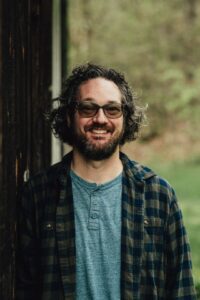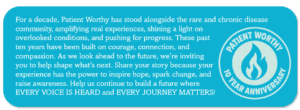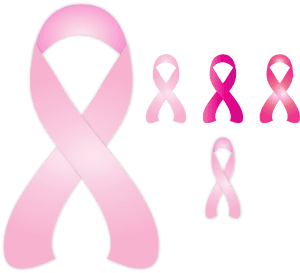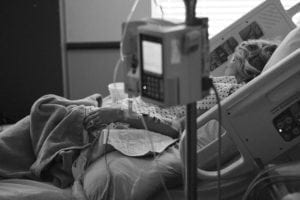Editor’s Note: This is the first part of an ongoing story. The second part will be published Tuesday, June 17th.
The fluorescent lights of the hospital room hummed, a stark counterpoint to the silence that hung heavy in the air. The sterile scent of antiseptic, usually unnoticed, now clawed at my nostrils, a physical manifestation of the dread that coiled in my stomach. Dr. Ramirez sat across from us, her face etched with a compassion that did little to soothe the icy grip of fear that had seized my heart. My mother, ever the picture of composure, sat beside me, her hands clasped tightly in her lap, a fragile facade masking the storm brewing within her eyes.
“Metastatic breast cancer,” the doctor said, the words hanging in the air like a death sentence. The phrase, clinical and detached, felt brutally inadequate to capture the avalanche of emotions that crashed over me. Metastatic. The word echoed in my mind, a chilling hammer blow that shattered the illusion of normalcy. Just weeks ago, we were planning a family trip, making mundane plans for the future, oblivious to the insidious enemy that was already wreaking havoc within my mother’s body. Now, the future felt like a dark, uncharted territory, filled with uncertainty and dread.
My initial reaction was a numb disbelief. It couldn’t be true. This was happening to someone else, not my mother, not our family. My mind scrambled, desperately searching for an explanation, a loophole, a way to rewrite this terrifying narrative. I watched my mother, her face pale but still serene, and wondered how she could maintain such composure in the face of such devastating news. Her eyes, however, betrayed a flicker of fear, a brief crack in her carefully constructed wall of strength. It was a silent acknowledgment of the monster that had infiltrated our lives.
The doctor’s subsequent explanation was a blur of medical jargon—tumors, lymph nodes, staging, prognosis—each word a tiny piece of a puzzle I couldn’t even begin to assemble. My mind struggled to absorb the information, overloaded and overwhelmed by the sheer scale of the situation. It felt as though I was drowning in a sea of technicalities, each term a chilling wave pulling me further into the depths of despair. I scribbled notes frantically, hoping to capture some semblance of understanding, but the words on the page seemed as meaningless as the numbers and percentages she quoted.
The doctor spoke of treatment options, of chemotherapy, radiation, surgery—a brutal regimen of warfare against an invisible enemy. Each procedure felt like a new wound, a fresh layer of fear added to the already unbearable weight of the diagnosis. I struggled to process it all, my mind reeling from the shock, the grief, and the sheer terror of the unknown. The sterile, clinical environment of the doctor’s office seemed to amplify the enormity of the situation. The white walls, the gleaming metal instruments, the antiseptic smell—everything felt cold, stark, and utterly devoid of hope.
Leaving the hospital felt like stepping out into a different world. The bright sunlight, the bustling streets, the sounds of everyday life—it all seemed strangely surreal, disconnected from the chilling reality we had just faced. The world outside continued its relentless rhythm, oblivious to the earthquake that had just shattered our lives. We drove home in silence, the familiar route now feeling alien and unfamiliar. Each familiar landmark seemed to mock our fragile state, a constant reminder of the normalcy we had so abruptly lost.
The warmth of our family home, usually a sanctuary, offered little solace. The familiar scent of my mother’s baking, typically a source of comfort, now felt like a cruel reminder of all that we stood to lose. The house, once filled with laughter and the familiar rhythm of family life, now felt heavy with unspoken anxieties and unspoken fears. The comfortable silence, once a symbol of peace, now felt pregnant with the looming shadow of the diagnosis.
My mother, surprisingly, was the one who initiated the conversation. She spoke calmly, her voice laced with a quiet strength that both surprised and comforted me. She spoke of fighting, of facing this challenge head-on. She spoke of her determination to live, to cherish every moment, and to make the most of the time she had left. She tried to maintain a semblance of normalcy, making plans, offering words of comfort and encouragement to her family. It was a heroic act of defiance in the face of a formidable foe.
But beneath the surface, I saw the tremor of fear. I saw the fragility of her composure. I saw the subtle shifts in her demeanor, the fleeting moments of vulnerability that betrayed the steely determination she projected to the world. And in those moments, I felt the weight of her illness, the enormity of her burden, and the immense responsibility that fell upon my shoulders.
The days that followed were a blur of appointments, consultations, and endless paperwork. Navigating the medical maze felt like trying to decipher a complex code, a language spoken only by the initiated. Each doctor, each specialist, spoke their own dialect, using technical terms and abbreviations that left me feeling lost and helpless. I found myself constantly struggling to understand the prognosis, the treatment options, the potential side effects. Every phone call, every email, every medical document felt like another blow, another piece of the puzzle that only served to deepen my sense of bewilderment and despair.
My days were spent shuttling my mother between doctors’ offices, hospitals, and labs. The waiting rooms, filled with anxious patients and their worried families, became strangely familiar. The air was thick with a palpable sense of dread, a shared experience that bonded us together, even as we all faced our own personal battles. Each appointment felt like a new wave of fear, a fresh onslaught of information that left us emotionally exhausted.
The constant bombardment of information, the endless questions, the uncertainty of it all, left me emotionally drained and physically exhausted. Sleep became a luxury I could barely afford, my nights haunted by nightmares and interrupted by anxious awakenings. I struggled to balance the demands of caregiving with my own personal life, neglecting my own well-being in an attempt to tend to my mother’s needs. The relentless pressure, the constant worry, left me feeling frayed, overwhelmed, and on the verge of collapse. And yet, I pressed on, fueled by a fierce love for my mother and a desperate hope that things would somehow get better. But even my hope, once boundless, began to feel brittle, fragile, and increasingly difficult to sustain.
 Author Bio: Sebastien Mansfield is a dynamic force in the world of social work and writing, blending a rich tapestry of experience with a passion for storytelling. A proud alumnus of Southern New Hampshire University, he earned his Bachelor of Arts in Social Work with a focus on Children and Families, laying the groundwork for a career dedicated to nurturing the most vulnerable among us. With over 20 years of pharmaceutical expertise under his belt, Sebastien has made a significant impact in healthcare, all while he passionately embraces the art of freelance writing. Currently residing in the picturesque Northeastern USA, he is on the cusp of sharing his literary voice with the world, as he prepares to launch his first book. Beyond his professional pursuits, Sebastien is deeply committed to family, taking an inspiring role in supporting a loved one battling cancer. His multifaceted journey reflects a profound dedication to uplifting others, making him not just a writer, but a beacon of hope and resilience in the community. With a heart full of compassion and a pen poised for change, Sebastien Mansfield is an author to watch.
Author Bio: Sebastien Mansfield is a dynamic force in the world of social work and writing, blending a rich tapestry of experience with a passion for storytelling. A proud alumnus of Southern New Hampshire University, he earned his Bachelor of Arts in Social Work with a focus on Children and Families, laying the groundwork for a career dedicated to nurturing the most vulnerable among us. With over 20 years of pharmaceutical expertise under his belt, Sebastien has made a significant impact in healthcare, all while he passionately embraces the art of freelance writing. Currently residing in the picturesque Northeastern USA, he is on the cusp of sharing his literary voice with the world, as he prepares to launch his first book. Beyond his professional pursuits, Sebastien is deeply committed to family, taking an inspiring role in supporting a loved one battling cancer. His multifaceted journey reflects a profound dedication to uplifting others, making him not just a writer, but a beacon of hope and resilience in the community. With a heart full of compassion and a pen poised for change, Sebastien Mansfield is an author to watch.







